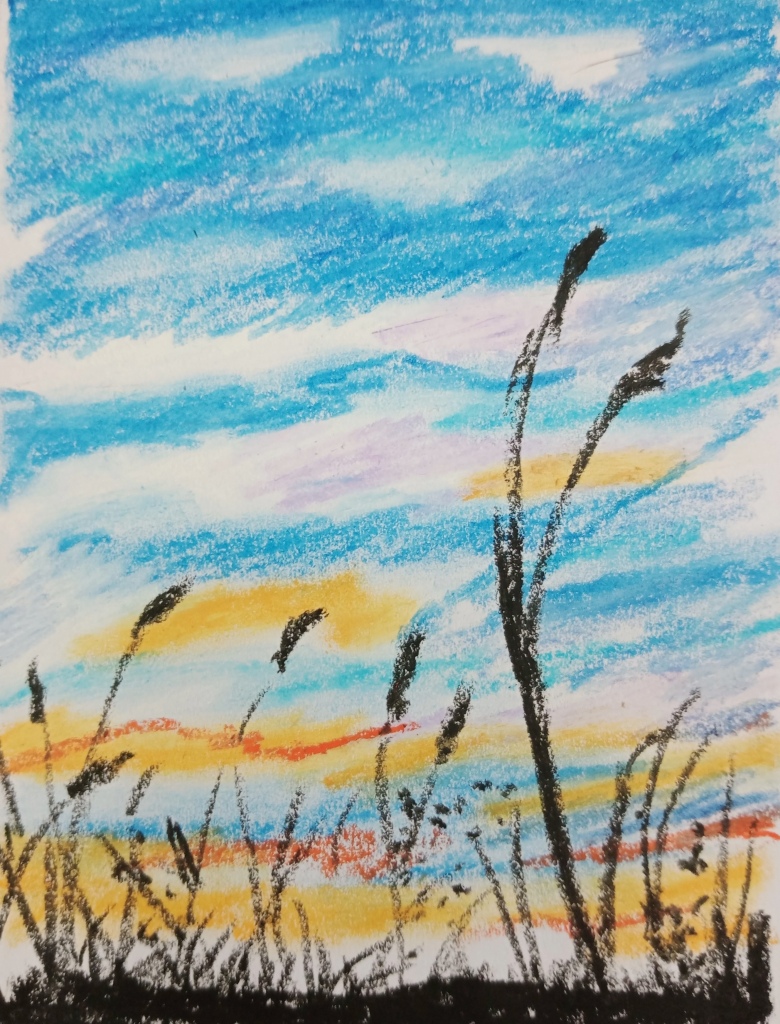
Editorial
Catch a Falling Star…Click here to read
Interviews
Shantanu Ray Chaudhuri: In Search of Serendipity: Shantanu Ray Chaudhuri, an iconic editor and film writer from India, converses on his own journey and traditional publishing. Click here to read.
A Wonderer Who Wanders Between Waves and Graveyards and Digs Up Ancient Tales: In Conversation with Amit Ranjan, a writer-academic, who is trying to redefine academic writing, starting with his book, John Lang the Wanderer of Hindoostan, Slanderer in Hindoostan, Lawyer for the Ranee. Click here to read.
Translations
Jibananda Das’s All Afternoon Long, translated from Bengali by Fakrul Alam. Click here to read.
The Colour of Time, Korean poetry composed and translated by Ihlwha Choi. Click here to read.
The Ordeal of Fame, a humorous skit by Rabindranath, translated by Somdatta Mandal. Click here to read.
Fazal Baloch translates a retold folktale from Balochi, The Precious Pearl. Click here to read.
Tagores’ Lukochuri has been translated from Bengali as Hide and Seek by Mitali Chakravarty. Click here to read.
Pandies’ Corner
These narratives are written by youngsters from the Nithari village who transcended childhood trauma and deprivation. The Story of Rajesh has been written by Yogesh Uniyal in a mix of English and Hindi, and translated fully to Hindi by Nirbhay Bhogal. Click here to read.
Poetry
Click on the names to read
Michael R Burch, Shantanu Ray Chaudhuri, Ron Pickett, Abin Chakraborty, Tohm Bakelas, Mini Babu, Sudakshina Kashyap, George Freek, Shailja Sharma, Allison Grayhurst, Amritendu Ghosal, Marianne Tefft, S Srinivas, Rhys Hughes
Poets, Poetry & Rhys Hughes
Rhys Hughes shares why he put together an anthology of humorous poetry with seventeen writers, Wuxing Lyrical. Is his logic funny or sane? Click here to find out.
Stories
Nileena Sunil gives us a flash fiction. Click here to read.
Paul Mirabile tells a strange tale set in Madrid. Click here to read.
Hridi gives us a poignant story on the banks of the river Seine. Click here to read.
Vedant Srinivas reflects on a childhood lost and a career found. Click here to read.
Rhys Hughes finds humour within pandemic sagas. Is it dark or light? Click here to read.
Musings/Slices from Life
Mike Smith uncovers the wonders of British writer, H.E Bates. Click here to read.
Ruleman Ngwenya and Johannesburg
G Venkatesh shares the experience of his first trip out of India long, long ago. Click here to read.
“You don’t have to understand life. You just have to live”
Shubha Apte muses on a book that taught her life lessons. Click here to read.
Mission Earth
In Falling Down and Getting Up, Kenny Peavy explores how to raise resilient children. Click here to read.
Notes from Japan
In An Encounter with the Monet on Naoshima, Suzanne Kamata writes of snacking on Claude Monet’s hundred year old recipes while savouring his art and that of the famed artist who makes bold art with polka-dots, Yayoi Kusama. Click here to read.
A Special Tribute
In Jean Claude Carriere: A Writer for all Directors, Ratnottama Sengupta pays homage to Jean Claude Carriere (1931-2021), the legendary screenwriter of Peter Brook’s Mahabharata. Click here to read.
Essays
Hesse’s Siddhartha: Towards a Shadowless Present
Dan Meloche revisits a hundred-year-old classic by Herman Hesse that is based on Buddhist lore. Click here to read.
Himalayan Stories: Evenings with Nuru at Pheriche
P Ravi Shankar takes us to a trekkers’ life in the Himalayas. Click here to read.
Living up to my Seafaring Name in Tasmania
Meredith Stephens explores Tasmania on a boat and with hikes with a gripping narrative and her camera.Click here to read.
The Observant Immigrant
In A Post Pandemic Future …?, Candice Louisa Daquin takes a look at our future. Click here to read.
Book Excerpts
An excerpt from Upamanyu Chatterjee’s Villainy. Click here to read.
An excerpt from Ramy Al-Asheq’s Ever Since I Did Not Die, translated from Arabic by Isis Nusair, edited by Levi Thompson. The author was born in a refugee camp. Click here to read.
Book Reviews
Rakhi Dalal revisits Tagore’s The Post Office, translated from Bengali in 1912 by Devabrata Mukherjee. Click here to read.
Indrashish Banerjee reviews Upamanyu Chatterjee’s Villainy. Click here to read.
Basudhara Roy reviews Sunil Sharma’s Burn The Library & Other Fiction. Click here to read.
Bhaskar Parichha reviews Radhika Gupta’s Limitless: The Power of Unlocking Your True Potential. Click here to read.

